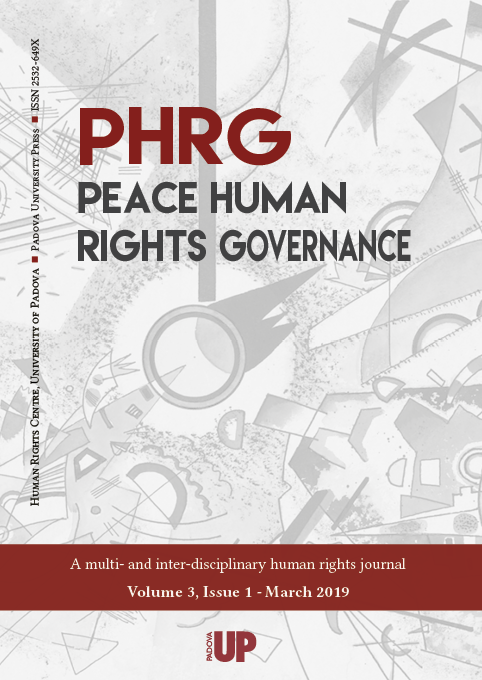Collections

Educational and Intercultural Dialogue among Younger Generations for the Full Enjoyment of their Rights as a New Challenge within City Spaces
- Sito internet
- Peace Human Rights Governance 3(1)
- Pubblication type
- Articolo / Saggio
- Pages
- 65-95
- Language
- EN
The challenge of urban spaces as new places for enhancing the participation of younger generations as active citizens is at the core of the contribution, along the lines of a larger debate promoted at the multilateral level within different intergovernmental systems in a development perspective (i.e. UNESCO, UNICEF, Council of Europe, European Union). Preliminarily an overview about the full enjoyment of rights for children living in an urban context will be explored to measure their involvement as a tool to really make cities child-friendly. The city profile could also be assessed in relation to policies and practices that facilitate intercultural interaction and inclusion, ensuring a concrete participation of young generations to take a diversity advantage in their lives and to contribute for an inclusive, safe and sustainable urban environment. This investigation aims at identifying the best set of analytical and practical tools already provided by the aforementioned systems and is ultimately intended to help sub-state institutional and private stakeholders in improving the protection and promotion of human rights. In this perspective a preliminary model is proposed to bring different local perspectives from young citizens on what are the actual safeguarding gaps, on how to use creatively public spaces and on which vision the young generations could have about their cities as a setting driving an high level of human rights standards within the UN 2030 Agenda for Sustainable Development framework.

